Pharmacy First initiative and GP referrals - Pharmacy mentor Sue Dobson in conversation with pharmacist Anil Chauhan…
As an Alphega pharmacy mentor, Sue Dobson has worked with pharmacists across the country, helping them adapt to the growing responsibilities and challenges they face in their profession. One of the most exciting developments in recent years has been the Pharmacy First initiative, which positions community pharmacists as key players in patient care, especially through GP referrals.
However, Sue has seen firsthand that the success of this initiative depends largely on the strength of the relationships we build with GPs and how we integrate these referrals into our day-to-day operations. Some pharmacists have thrived by establishing strong, collaborative relationships, while others have struggled to break down initial barriers of trust.
In this conversation, she speaks with Anil Chauhan, a Preston pharmacist who, along with his partner Yasar Hussain, has made GP referrals a seamless part of their practice. Their success story is a great example of how perseverance, trust-building, and a proactive approach can truly make a difference in the Pharmacy First model.
Sue Dobson: Anil, you and Yasar have done a great job with the Pharmacy First initiative and GP referrals. Can you start by sharing how you first got involved with GP referrals and what made it successful in your practice?
Anil Chauhan: It all started with the Community Pharmacy Consultation Service (CPCS), where our local GP surgery began referring patients to us for specific conditions. Initially, there were some constraints, but as we built our relationship with the GP, things began to smooth out. We invested time in training, learning to manage conditions like ear infections and sore throats. Over time, GPs started trusting us more and more. That trust is really what made it work.
Sue: Yes, trust is absolutely critical, isn’t it? From my experience mentoring pharmacists across the country, I’ve seen how essential it is to build that trust over time. It doesn’t happen overnight—you can’t just show up and expect the GP to trust you with their patients. I always tell the pharmacists I work with that it’s about proving yourself with consistent actions.
Anil: Absolutely, I remember when we first started getting referrals from the GP, I would often spot small prescription errors—maybe a quantity issue or a potential interaction. Instead of just fixing it on my end, I would always call the GP to confirm what they intended. After doing that a few times, they started to see that I was paying attention and that I wasn’t just blindly processing prescriptions. It built up that rapport over time. Eventually, they knew they could trust me to handle things competently, and that’s when the referrals started coming in more regularly.
Sue: That’s a great approach, Anil. One of the things I see in my mentoring work is that not all pharmacists take the time to engage with GPs at that level. They sometimes feel hesitant to pick up the phone and question a prescription, but those small moments of communication can be crucial. What you did by consistently reaching out showed that you were invested in patient safety, which naturally leads to more trust. It’s something I always encourage—don’t be afraid to communicate with GPs, even if it’s just to double-check something. It proves your reliability.
Anil: Exactly, Sue. It wasn’t an overnight process. It took months of reaching out about minor issues, being consistent, and showing them that we’re on top of things. Now, the GPs are happy to send us referrals because they know we can handle it. It’s all about proving yourself through action, rather than just words.
Sue: And that’s exactly the point I try to make with the pharmacists I mentor. It’s about consistency and proving yourself over time. I’ve seen pharmacists struggle because they haven’t built those initial relationships with their GPs. Some haven’t even introduced themselves properly! But as you and Yasar have shown, once you put in the time and effort, you can build a strong, trusting relationship that benefits both the pharmacy and the GP surgery. It’s not just about dispensing medication anymore—it’s about being a collaborative partner in patient care.
Anil: That’s true. And once we built that trust, the GPs were more open to sending us referrals. It helped that we also invested in additional training to expand the services we could offer. For example, we learned how to handle ear and throat examinations, which allowed us to manage more complex cases. Once the GPs saw that we were capable of handling these conditions effectively, they were even more confident in referring patients to us.
Sue: I love that you mention training, because that’s another thing I always emphasise in my mentoring sessions. It’s not enough to just expect referrals to come in—you’ve got to be prepared for them. That means investing in training and making sure your skills are up to the task. I’ve seen pharmacies thrive when they take that proactive approach. And you didn’t stop with just yourself—you made sure your whole team was involved. That’s something I would encourage more pharmacies to work on: empowering the entire team to support these new services.
Anil: That’s exactly what Yasar and I have done. We couldn’t manage all the referrals on our own, so my team handles a lot of the initial contact with patients. They’re trained to book appointments, manage referrals on PharmOutcomes, and make sure everything runs smoothly. It’s made a huge difference in how efficiently we operate.
Sue: That’s brilliant, and I think that’s the kind of approach we need to see more of. Pharmacy First has the potential to be such a transformative initiative, but only if pharmacists are properly supported and prepared. That’s why I’m so passionate about mentoring. I want to help more pharmacists reach the point where GP referrals are second nature, and they’re seen as essential partners in the healthcare system.
It’s not always easy. Some areas are further ahead than others, and I’ve seen varying levels of success across the country. In some regions, GPs are fully on board, and in others, there’s still some hesitation. But with pharmacists like you leading by example, I’m hopeful we’ll see more and more pharmacists building those relationships and taking on a bigger role in patient care.
Anil: I hope so, too. Pharmacy First isn’t just about relieving pressure on GPs—it’s about changing the way we operate as pharmacists. We can be more than just dispensers. We can be consultants, healthcare providers, and partners in the community. I think the future of pharmacy is going to depend on us stepping into those roles more and more.
Sue: Exactly, and that’s why we need to keep pushing forward. There’s so much potential in Pharmacy First, but we need to make sure pharmacists have the right tools, the right training, and the right support. That’s what I’m here for as a mentor, and it’s what I hope to help more pharmacists achieve. Anil, you and Yasar have set such a great example, and I’m sure others will be inspired by your success.
Anil: Thanks, Sue. It’s been great to share my experience, and we hope it encourages more pharmacists to build those relationships with their GPs. With the right approach, Pharmacy First can really make a difference.




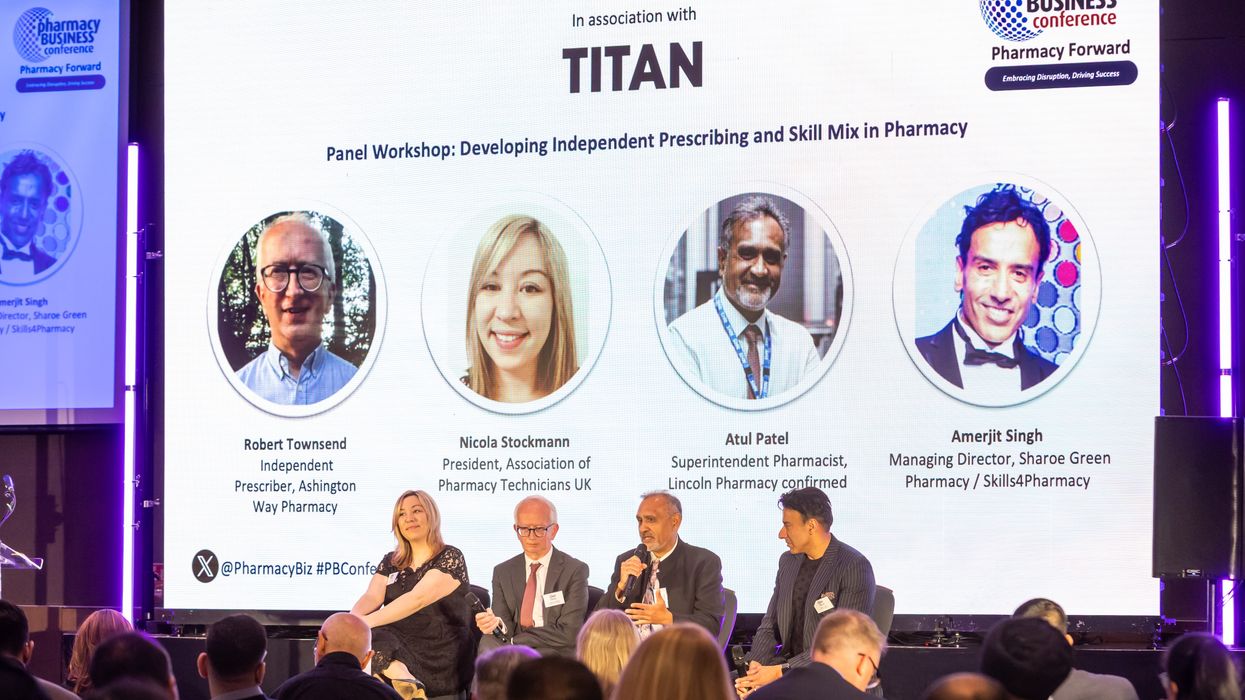




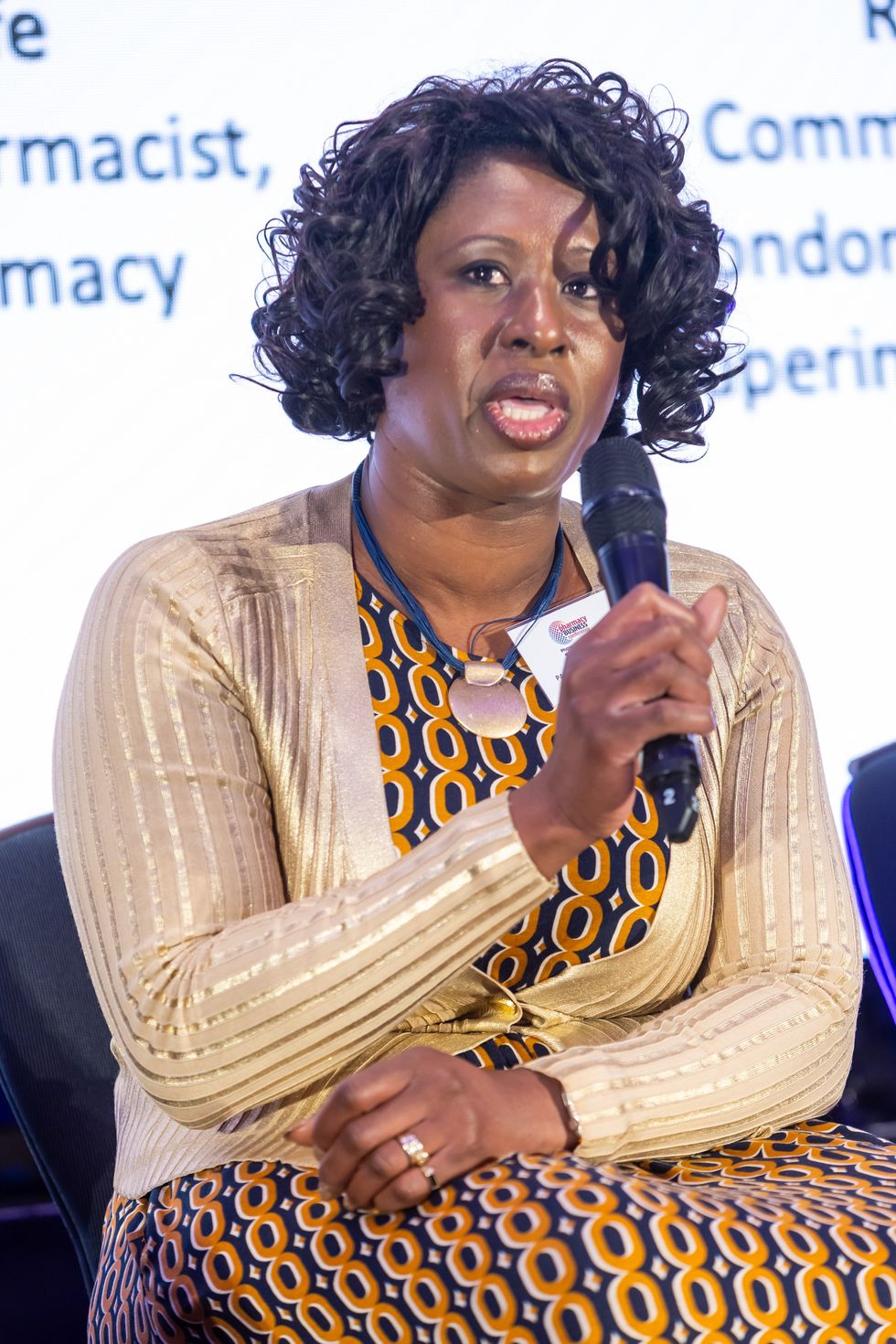 Patricia Tigenoah-Ojo
Patricia Tigenoah-Ojo Baba Akomolafe,
Baba Akomolafe, 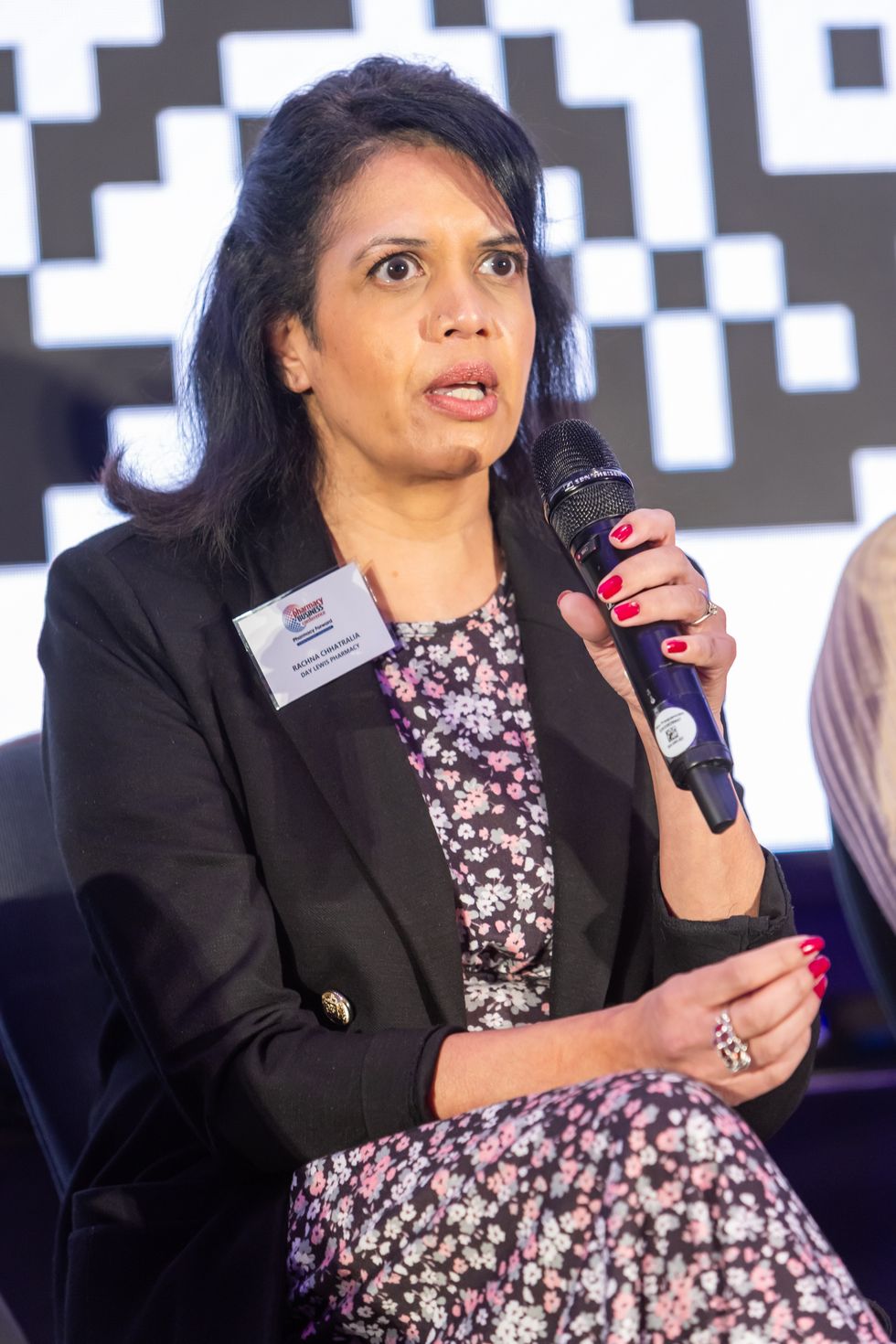 Rachna Chhatralia
Rachna Chhatralia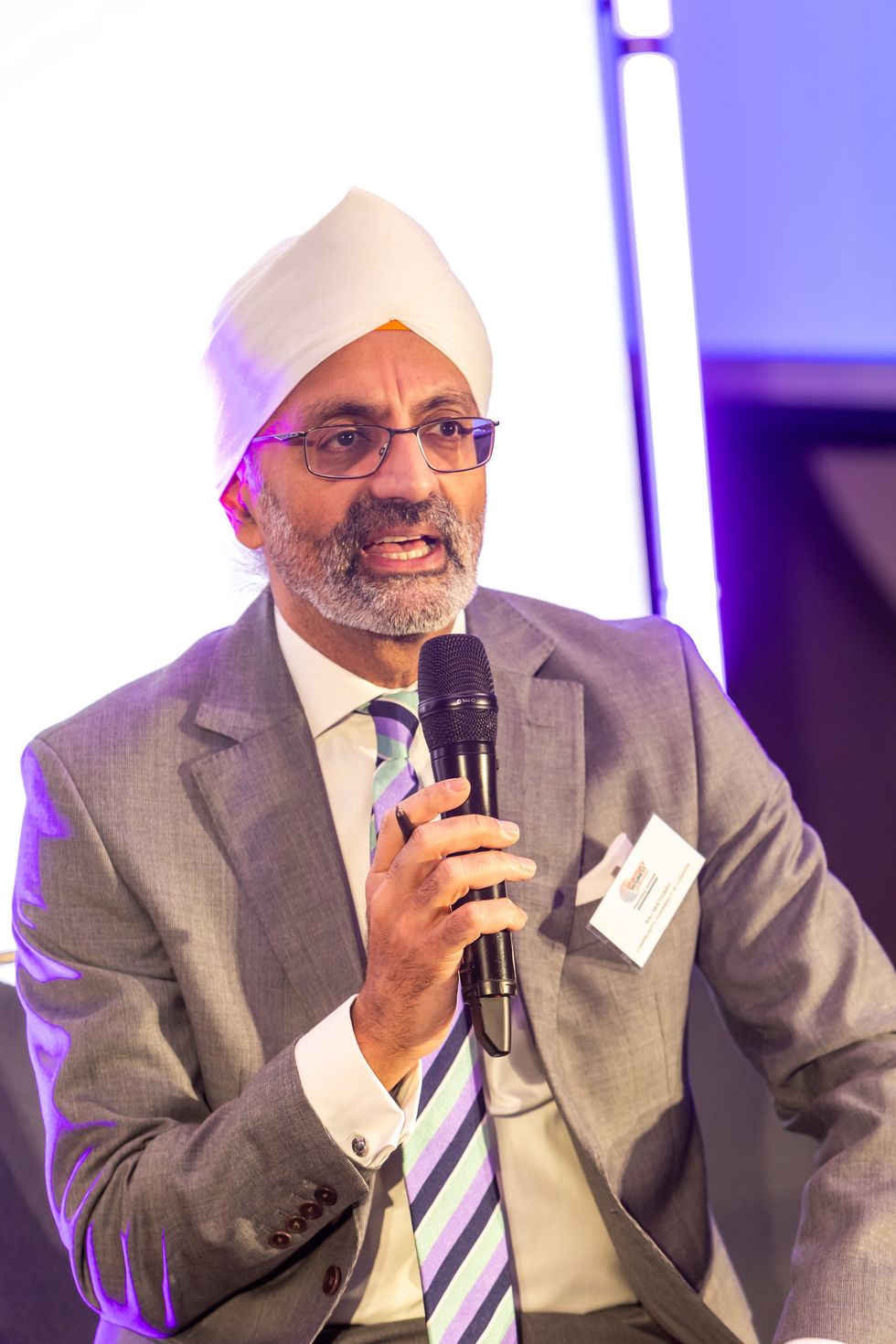 Raj Matharu
Raj Matharu


![Potential Side Effects of Mounjaro [What You Need to Know]](https://www.pharmacy.biz/media-library/image.jpg?id=54516976&width=1245&height=700&quality=90&coordinates=0%2C29%2C0%2C29)



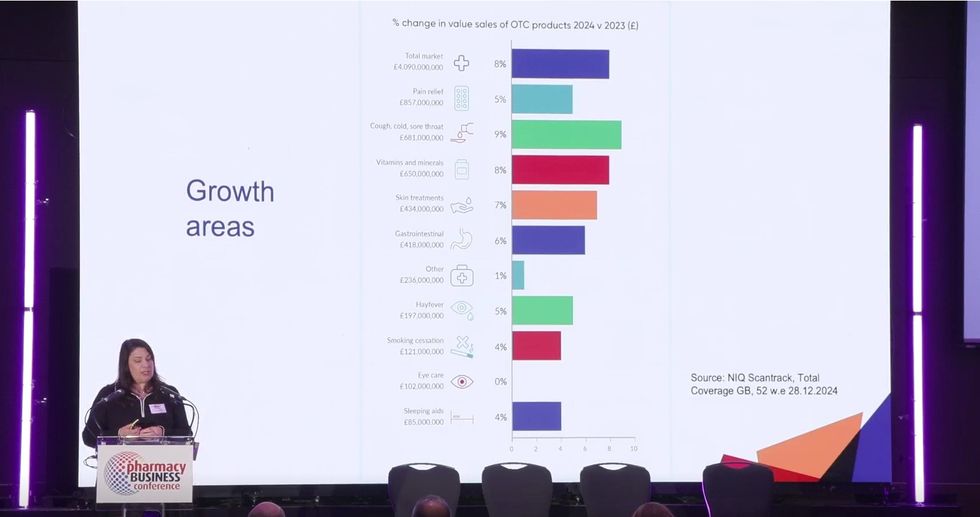 NielsenIQ data shows a positive trend in OTC sales
NielsenIQ data shows a positive trend in OTC sales 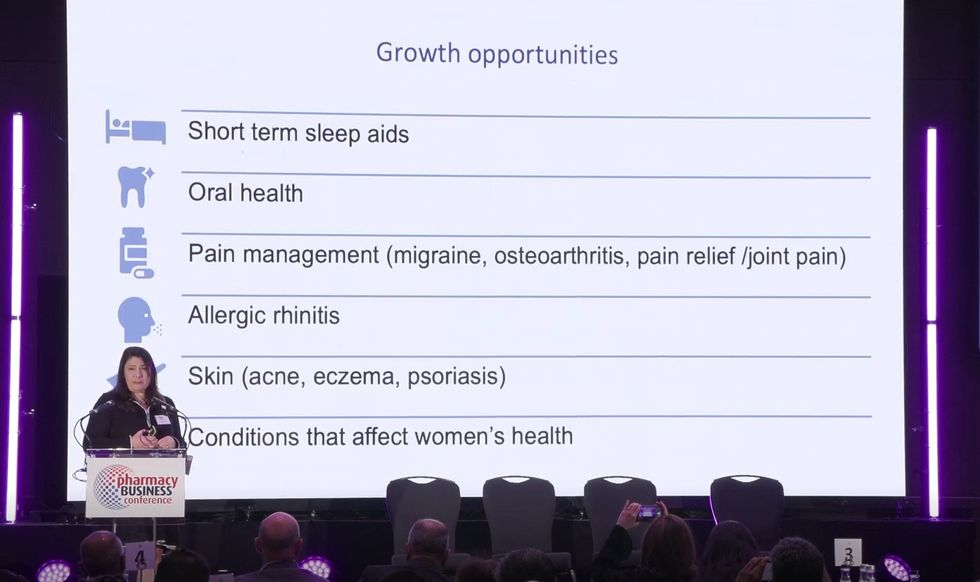 Six broad health conditions where medicines can be reclassified are shown on the screen.
Six broad health conditions where medicines can be reclassified are shown on the screen. 


 Health Secretary Wes Streeting addresses Pharmacy Conference via video
Health Secretary Wes Streeting addresses Pharmacy Conference via video 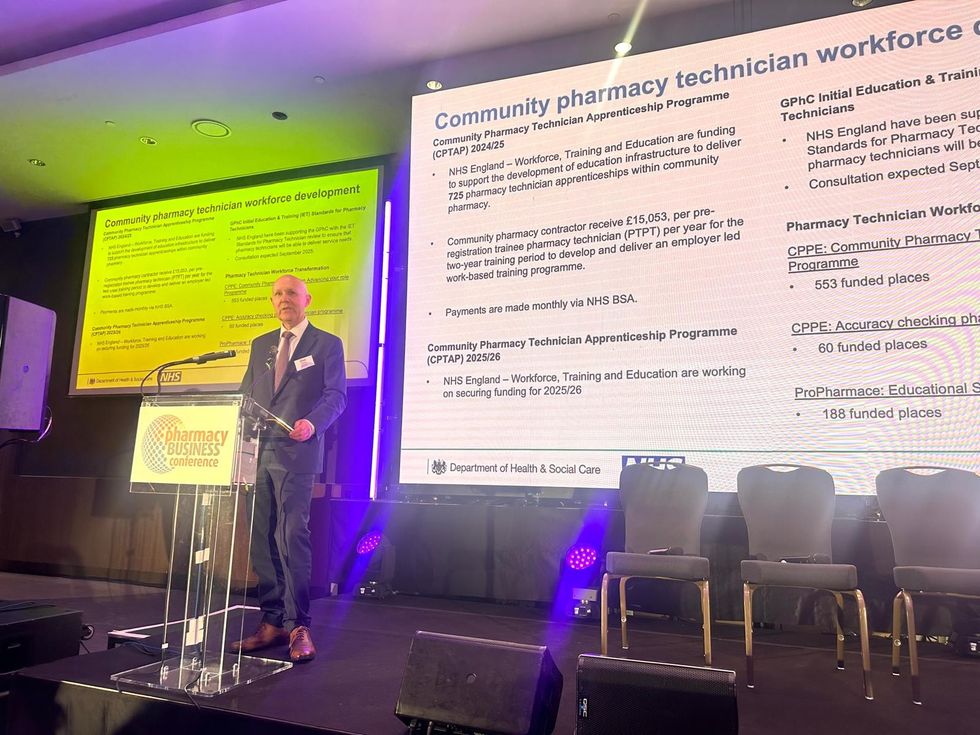 David Webb, chief pharmaceutical officer of NHS England
David Webb, chief pharmaceutical officer of NHS England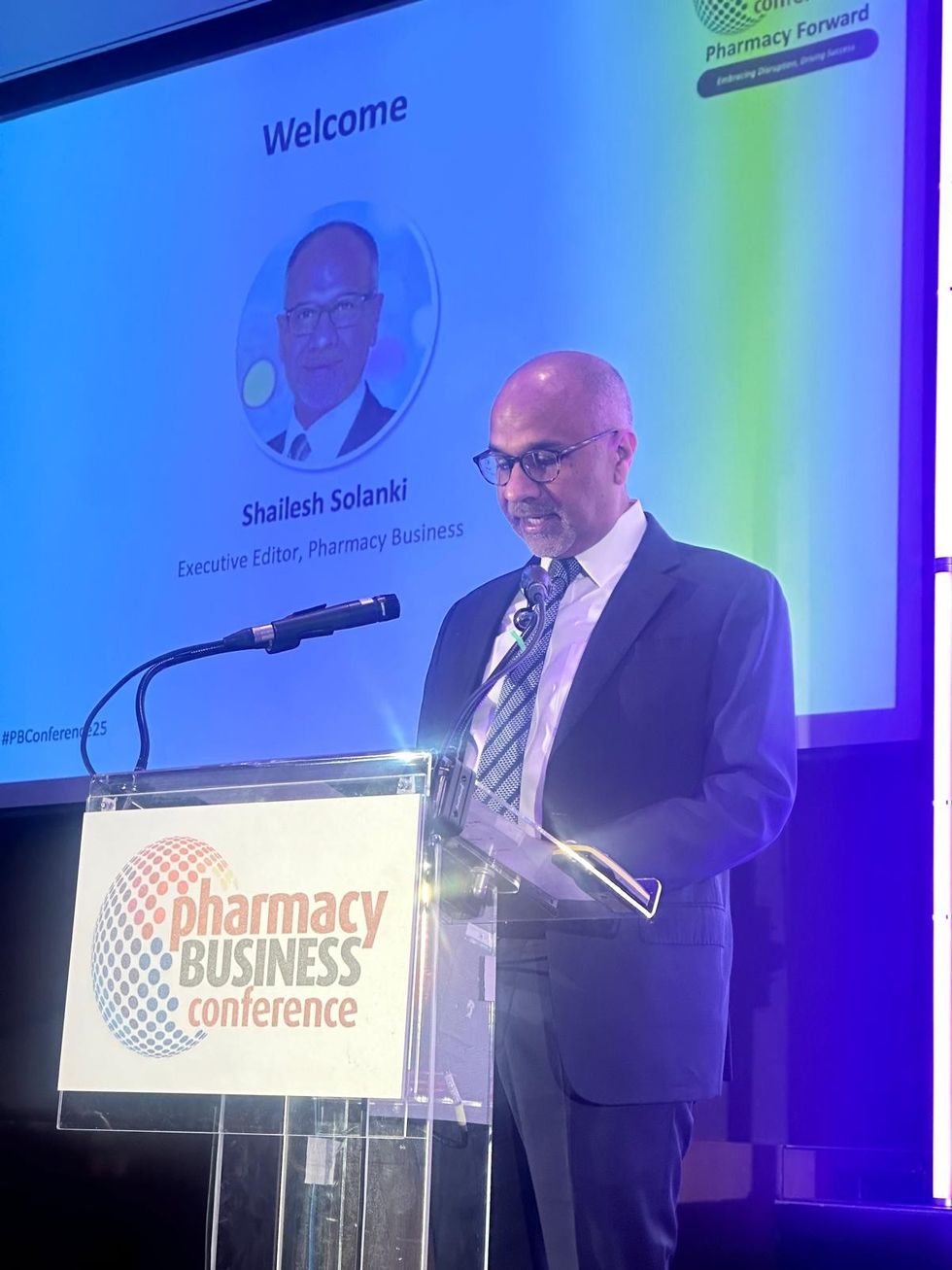 Shailesh Solanki, executive editor of Pharmacy Business
Shailesh Solanki, executive editor of Pharmacy Business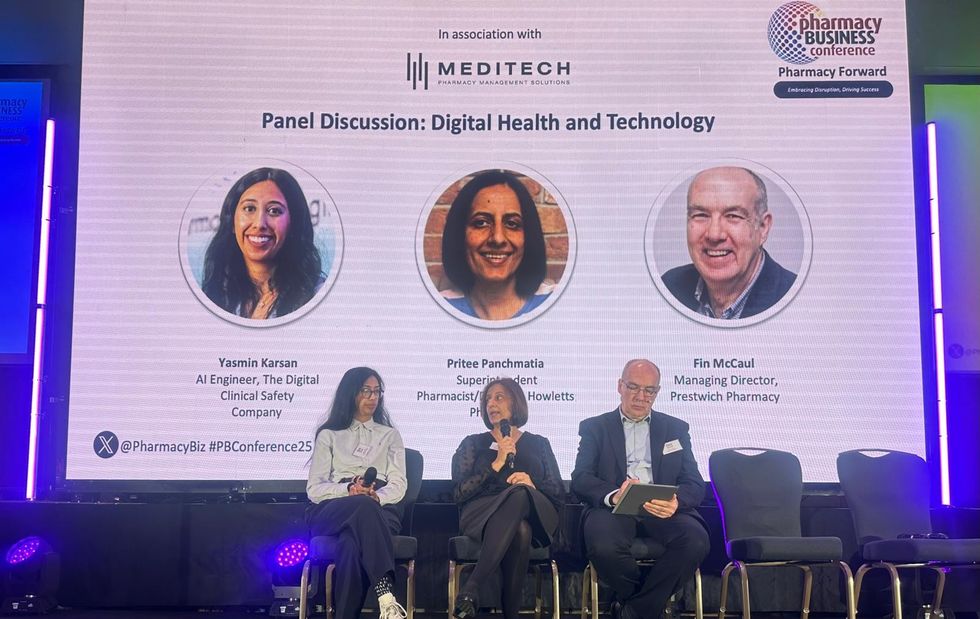 L-R: Yasmin Karsan, Pritee Panchmatia and Fin McCaul
L-R: Yasmin Karsan, Pritee Panchmatia and Fin McCaul 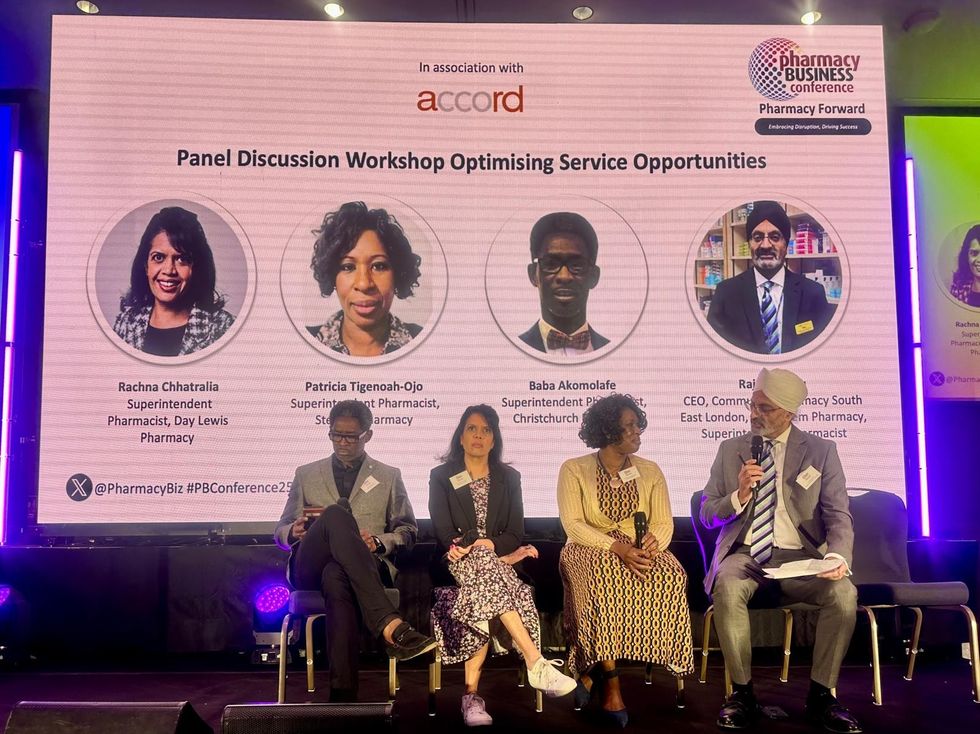 L-R: Baba Akomolafe, Rachna Chhatralia, Patricia Tigenoah-Ojo and Raj Matharu
L-R: Baba Akomolafe, Rachna Chhatralia, Patricia Tigenoah-Ojo and Raj Matharu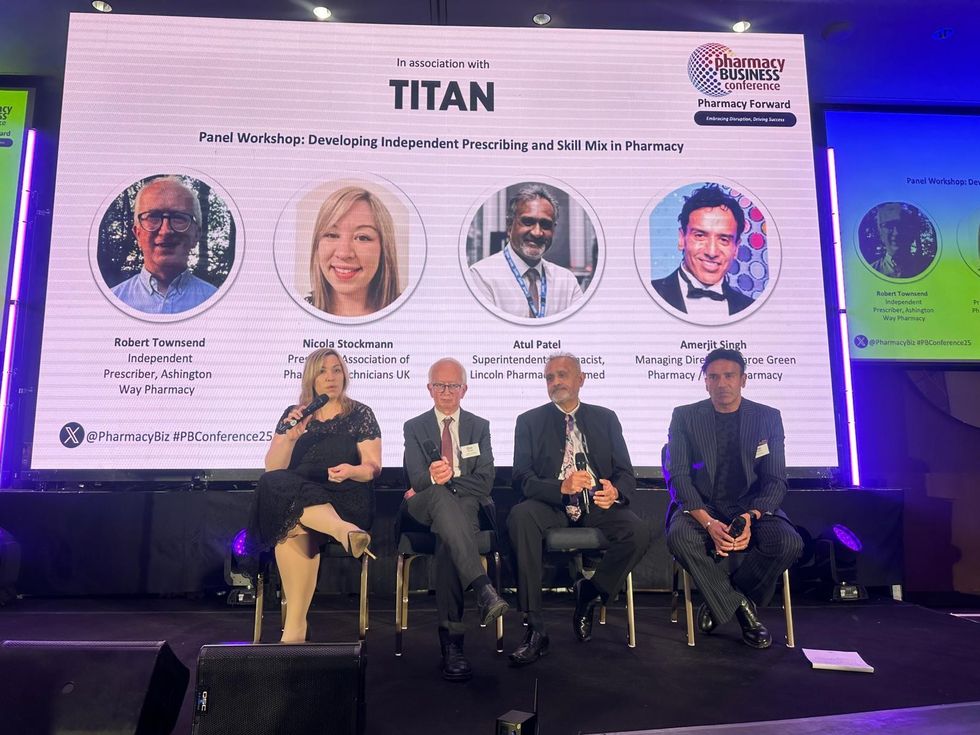 L- R: Nicola Stockmann, Robert Townsend, Atul Patel and Amerjit Singh
L- R: Nicola Stockmann, Robert Townsend, Atul Patel and Amerjit Singh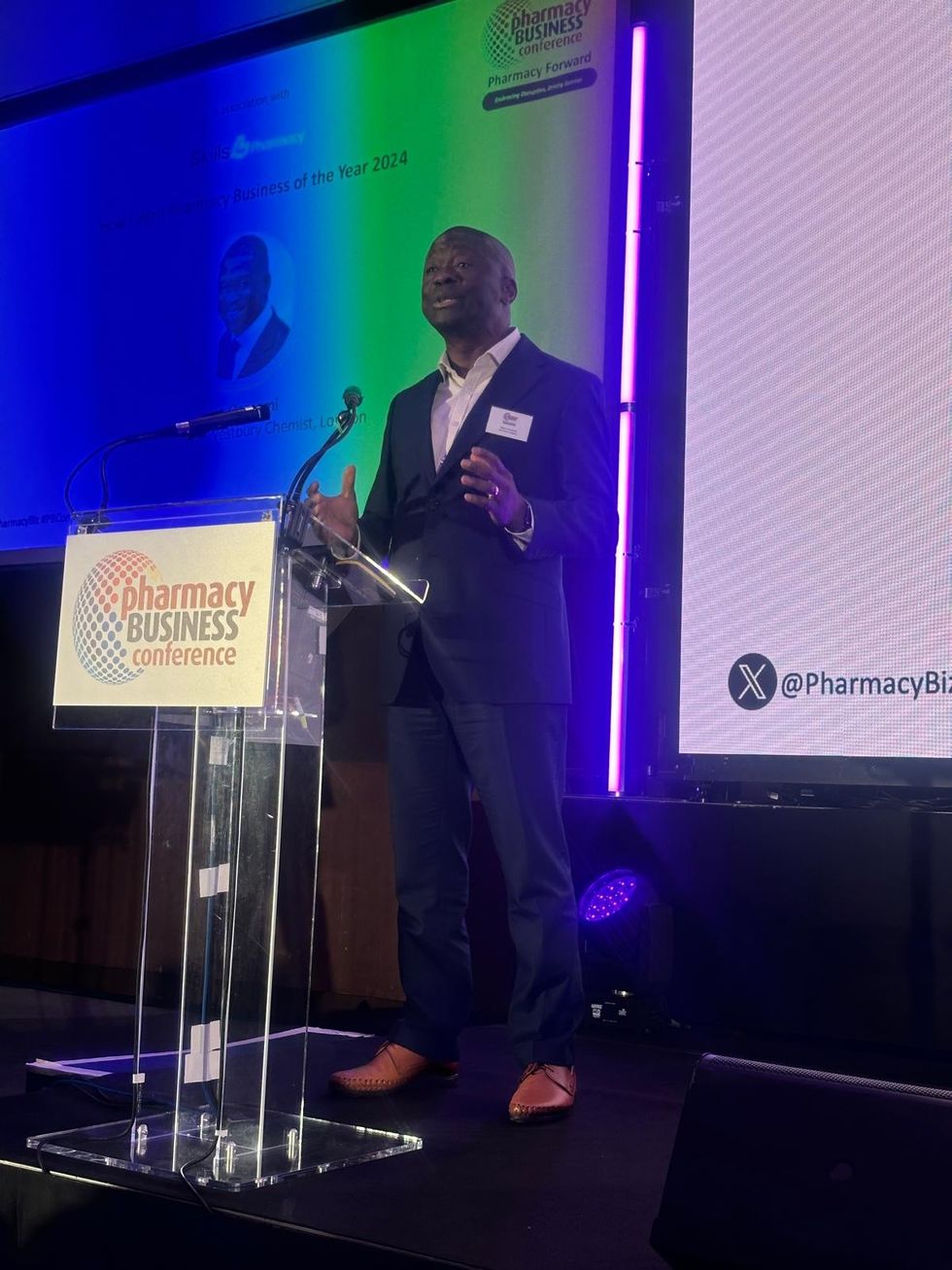 Wole Ososami, lead pharmacist at Westbury Chemist
Wole Ososami, lead pharmacist at Westbury Chemist